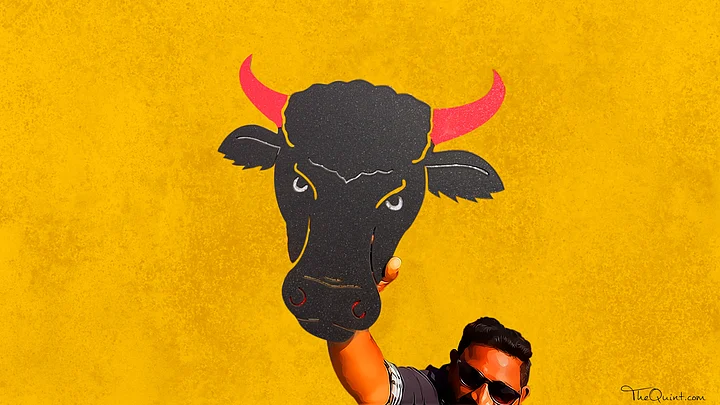Many years ago, I had accepted an appointment in Chennai and in my first address to the large contingent of local employees, I had drawn similarities between the pedigreed societies of Bengal and Tamil Nadu underpinned by their rich, ancient cultural heritage of literature, art, architecture, music and philosophy.
I dwelt upon wide-ranging social reforms pioneered by the likes of Raja Rammohan Roy, Iswar Chandra Vidyasagar, Iyothee Thass and Periyar over centuries of ingrained social evils in our respective societies. Despite being a rank outsider to Tamilian society, I gained immediate acceptance and respect and spent what I still consider a very fulfilling part of my career, despite the serious handicap of not even knowing the local language.
Also Read: Has Jallikattu Turmoil Exposed the Delhi vs South India Divide?
Disproportionate Response to SC Order
Without going into the relative merits of both sides of the current argument, I was dismayed that a society with such a glorious legacy chose – what would seem to most – a disproportionate response to a judgement of the Supreme Court of the land and, more regrettably, link it to the apocalyptic threat to the identity and survival of the Dravidian culture.
Being a spontaneous movement without being sponsored by any political party, the role of social media in whipping up this frenzy amongst the youth is obvious: The fact that reason almost always loses out to passion in this face-off with the mobs, either on the streets or on Twitter, has been witnessed before.
It would have been so much more fulfilling if the same fervour and passion truly united the masses for any of the multitude of social issues which hit the headlines with alarming regularity – women safety, child trafficking, drug abuse, Dalit oppression, etc.
Also Read: A Young Nation, Few Jobs: The Truth Behind the Jallikattu Protests
What is Popular VS What is Right
Quite predictably too, the role of all the political parties in jumping onto the bandwagon by jostling to be on the right side of the popular discourse instead of pacifying the well-intentioned, but misdirected youth, lent fuel to the fire. Iconic figures too, some with bizarre logic involving biryani or beef exports, chose to support the movement. Each public institution of governance reveled in passing the buck till it reached the President/PM.
All sought to be on the popular side of the argument, not the right side mandated by the rule of law. None chose to weigh the serious, long-term consequences of their immediate action. The absence of determined, thoughtful leadership of the likes of a Sardar Patel and Sarvapalli Radhakrishnan or statesmen like CR Rajagopalachari is sorely missed.
Also Read: Jallikattu Live: DMK Walks Out of Tamil Nadu Assembly
The Executive’s Overreach
Though there could be legitimate grounds to seek a revocation of the ban, there are well-established norms of doing so. By taking the ordinance route, we have once again forced a most unwise run-in of the executive with the judiciary. The implications would be more far-reaching than in the Shah Bano case in 1984, where a SC judgement was overturned by passing legislation in parliament to placate a particular community.
Both the polity and political discourse have deteriorated manifold since then, and the probability of mobs across the spectrum putting the pressure of numbers to circumvent the rule of law and institutions will now amplify significantly. Sub-nationalism and identity politics is bad enough during the elections, but perilous if it dictates day-to-day governance of real life situations on the ground.
Also Read: Humans of Jallikattu Protests
Aggressive Sub-Nationalism
The aggressive assertion of sub-nationalism in its various forms and derivatives – linguistic, regional, caste – will only splinter the nation further. Starting from VP Singh's imprudent, and politically opportunistic, acceptance of the Mandal Commission report in the late 80s, such divisive thinking has come to rule the centre stage of political activity, culminating with Hardik Patel and the Jat agitation in 2016. Though Jallikattu was a peaceful protest, the message is still the same – espousing the cause of assertive sub-nationalism to express deep resentment at national institutions.
What is giving the impetus to an increasing variety of sub-nationalisms in what is essentially a pluralistic, multicultural polity in India is for the political leadership and academics to ponder over. The Supreme Court, the last bastion of credibility from amongst the three principal institutions of the democratic framework in our country, has been the casualty in this round – that cannot augur well for the nation.
By passing this ordinance, the political class has tied itself in a Gordian Knot and this will be a constraining factor in the political agenda to take India forward, as governance will become progressively more unmanageable with this development.
And paradoxically, reducing the rich and glorious Tamilian identity to merely the archaic, and arguably often barbarous, sport of Jallikattu is actually denigrating the ethos of the very people who the movement claims to represent.
(A Sloan Fellow from the London Business School and a Chartered Accountant, the writer presently manages a PE fund and has formerly been a Director and Group CFO in various companies. He can be reached @PrabalBasuRoy. This is an opinion piece and the views expressed above are the author’s own. The Quint neither endorses nor is responsible for the same.)
Also Read:
Jallikattu Ban: Will the Real Ramachandra Guha Please Stand Up?
Defending Jallikattu in the Name of Tradition Is Like Backing Sati
(At The Quint, we question everything. Play an active role in shaping our journalism by becoming a member today.)
